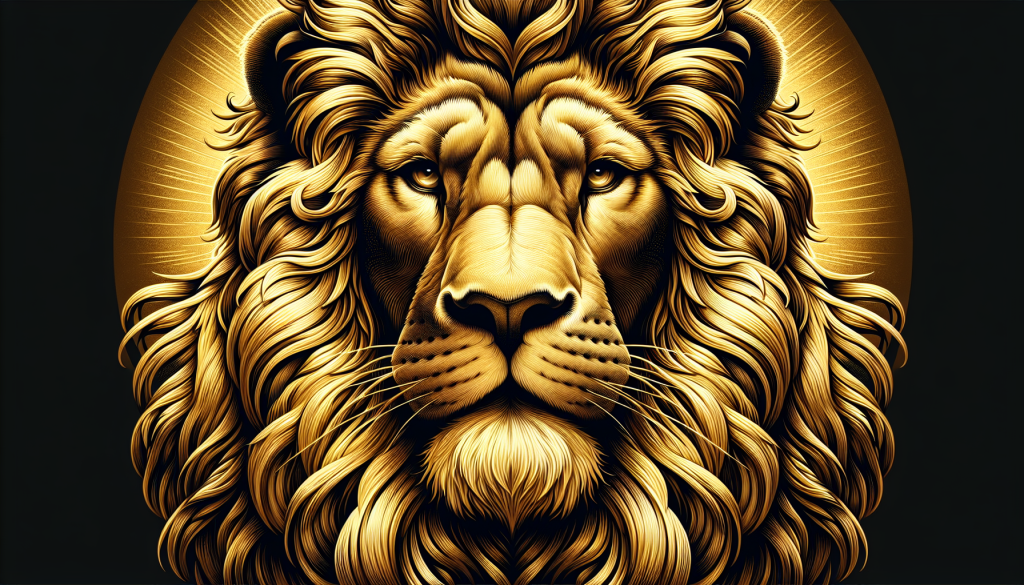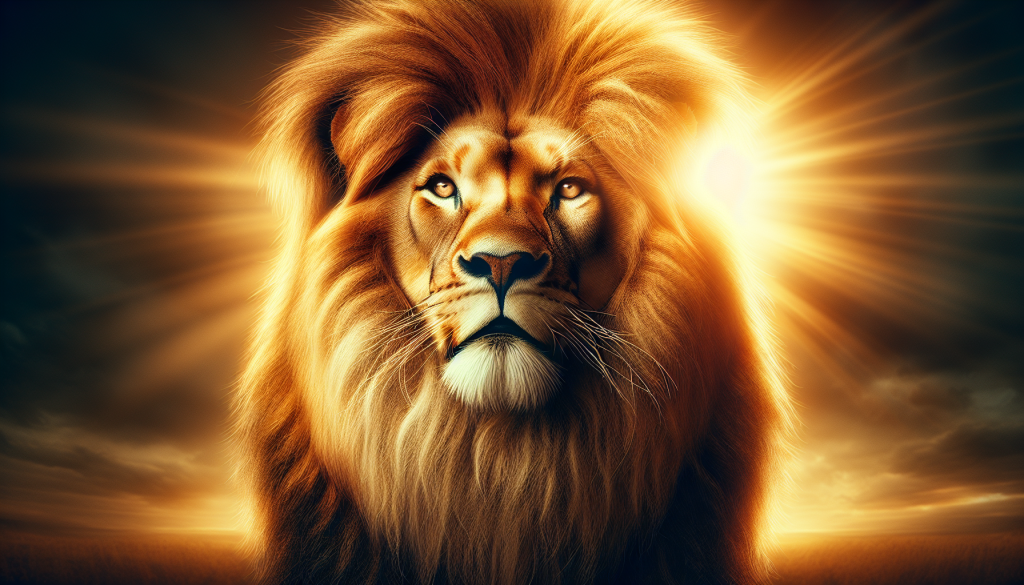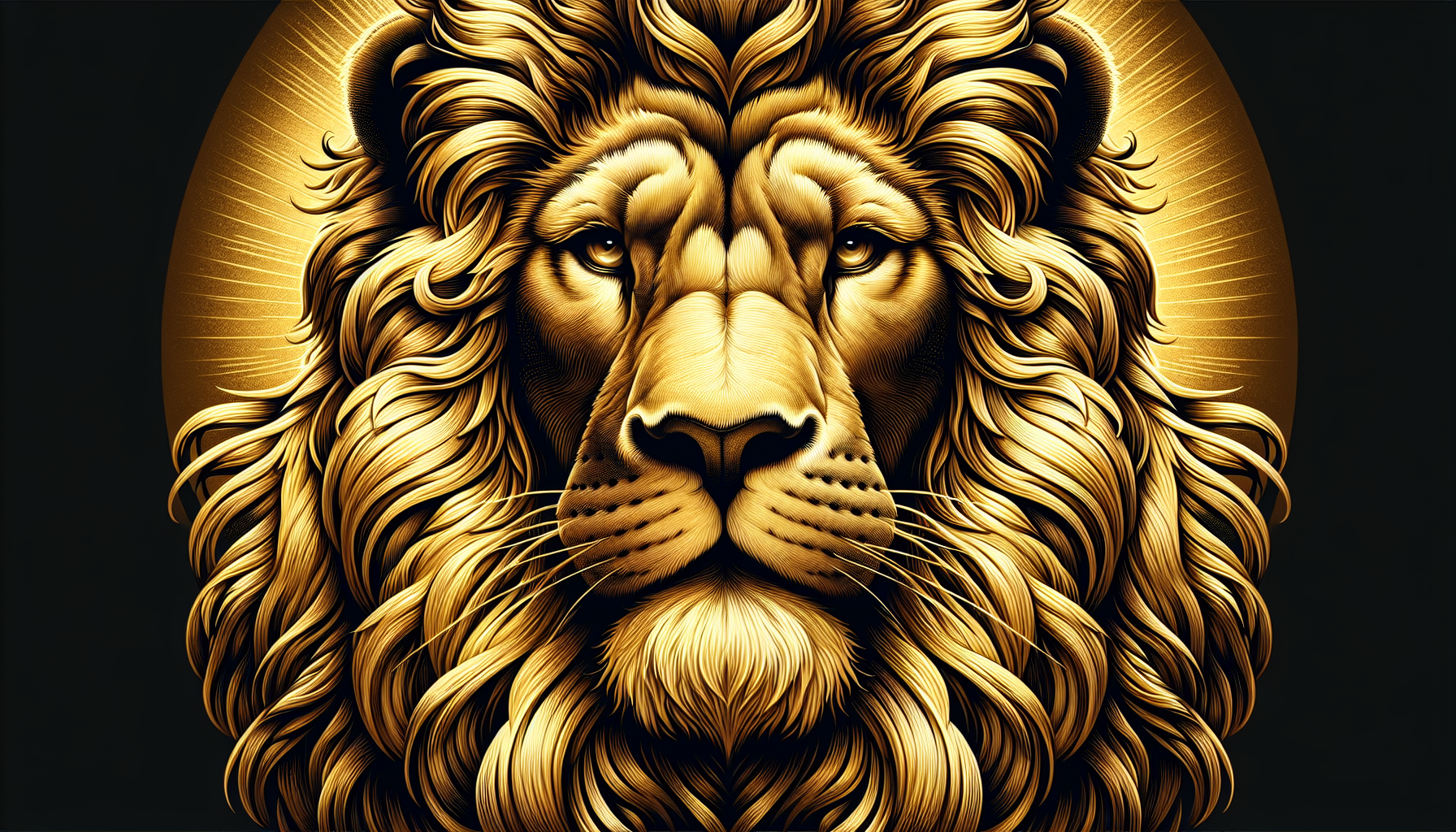In this article, we explore the fascinating world of lion symbolism and its significance in culture and myth. Join us as we delve into the rich history of the king of beasts, uncovering the diverse meanings and representations associated with this majestic creature. With insights from experts, we’ll journey through ancient civilizations and contemporary societies to understand how the lion has captured the imaginations of people throughout history. Whether revered as a powerful guardian or feared as a symbol of dominance, the lion has left an indelible mark on human culture, and we’re here to unravel its mysteries. So, fasten your seatbelts as we embark on a captivating exploration of lion symbolism!
Lion Symbolism
Origin and Meaning of Lion Symbolism
The lion, often hailed as the king of beasts, has long held a powerful and majestic presence in various cultures and mythologies. Its symbolism spans across time and continents, embodying different qualities and interpretations. Understanding the origin and meaning of lion symbolism helps us unravel the rich tapestry of human imagination and collective consciousness.
Lions as Symbols of Power and Majesty
One cannot discuss lion symbolism without acknowledging its association with power and majesty. In the animal kingdom, the lion reigns supreme as the king of the jungle. Its commanding presence and fierce demeanor have earned it a reputation as a symbol of authority and leadership. Throughout history, lions have adorned royal heraldry, representing the strength and dominance of rulers and empires.

Lions as Symbols of Courage and Strength
The lion’s courage and strength have been well-documented, both in literature and folklore. From Aesop’s fables to the works of Shakespeare, the lion is often portrayed as a fearless and noble creature, unafraid to confront challenges head-on. This symbolism extends beyond the realm of stories, as lions are frequently chosen as symbols in sports team logos, reflecting the attributes of bravery and resilience.
Lion Symbolism in Different Cultures
Within different cultures, the lion takes on varying symbolic meanings. In ancient Egypt, the lioness was revered as a protective deity, representing the fierce maternal instincts and guardianship. In Hinduism, lions are depicted as the sacred vehicles of Hindu gods, symbolizing their power and divine authority. In Christianity, the “Lion of Judah” is a prominent biblical reference, representing Jesus as the fierce and victorious leader.

Lion Symbolism in Ancient Egypt
In ancient Egypt, the lioness played a significant role in religious beliefs and rituals. Known for their ferocity and protective nature, lionesses were associated with the goddesses Sekhmet and Bastet. Sekhmet, the lion-headed goddess of war and healing, embodied the power and destructive force of the sun. Bastet, the lioness goddess of protection and fertility, represented a gentler and nurturing aspect.
Furthermore, lions held symbolic importance in the titles and royal regalia of pharaohs. The Pharaohs often wore an intricate headdress known as the Nemes, which featured the image of a lion with a cobra. This combination symbolized the royal power and authority that the pharaohs possessed, with the lion representing their might and the cobra symbolizing their connection to the divine.
Lion Symbolism in Hinduism
Hinduism, one of the world’s oldest religions, incorporates the symbolism of lions in its pantheon of deities. Lions are often depicted as the vehicles, or vahanas, of various gods and goddesses. For example, the goddess Durga, a warrior goddess who combats evil, is often depicted riding a lion or tiger. This representation symbolizes her strength, fearlessness, and ability to triumph over adversity.
In Hindu epics and legends, lions are also featured prominently. The legendary hero Rama from the Ramayana is believed to have a close association with lions, portraying him as a valorous and righteous ruler. The ferocity and bravery of lions are seen as attributes that uphold righteousness and protect against evil forces.
Lion Symbolism in Christianity
Christianity, too, draws upon the lion as a symbol with significant religious connotations. The “Lion of Judah” is a biblical reference found in the Book of Revelation, representing Jesus Christ as the divine leader and conqueror. This symbolism aligns with the lion’s regal presence and its association with power and authority.
Additionally, lions are frequently mentioned in Christian symbolism and references in the Bible. Lions symbolize strength, vigilance, and protection against evil forces. They embody qualities that believers strive to emulate, such as courage in the face of adversity and guarding against spiritual danger.
Lion Symbolism in African Cultures
In various African cultures, lion symbolism holds a special place in folklore, proverbs, and rituals. Lions are revered as symbols of strength, courage, and nobility. Within African folklore, the mighty lion often serves as a protagonist, representing bravery and wisdom. Through proverbs and tales, lions teach valuable life lessons to younger generations, emphasizing the importance of bravery and unity.
Traditional African art frequently incorporates lion imagery, showcasing the cultural significance of this majestic creature. Masks, sculptures, and paintings often depict lions with regal expressions and strong stances, symbolizing leadership, protection, and familial ties.
Lion Symbolism in Chinese Culture
In Chinese culture, lion symbolism is deeply rooted in ancient mythology and art. The lion is associated with power, protection, and prosperity. Lion dances, a traditional form of performance art, are a common sight during Chinese New Year celebrations. The vibrant lion costumes, featuring intricate designs and vibrant colors, depict the mythical creatures as bringers of good luck and fortune.
The symbolism of lions extends beyond the realm of festivities. Many Chinese temples and palaces feature lion statues guarding their entrances. These lion statues, known as “foo dogs,” represent guardianship and protection against evil spirits. The statues often come in pairs, with a male lion (representing yang) and a female lion (representing yin), symbolizing the balance of opposing forces.
Lion Symbolism in Greek Mythology
In the realm of Greek mythology, lions hold their own special place as symbols of gods and heroes. The famous Nemean Lion, one of Hercules’ twelve labors, was a mythical creature that could not be killed with mortal weapons. This lion symbolized strength, resilience, and overcoming seemingly impossible challenges. Greek gods and goddesses, such as Apollo and Athena, are also depicted alongside lions, representing their power and association with prowess in battle.
Across cultures and mythologies, lion symbolism remains a prevalent and meaningful presence. From the majestic rulers of ancient Egypt to the courageous and valiant heroes of Greek mythology, the lion continues to captivate our imaginations and symbolize the timeless qualities of power, courage, and strength. Its significance resonates not only within cultural contexts but also within the depths of human psyche, reflecting our innate desire for greatness and the ability to overcome adversity.

